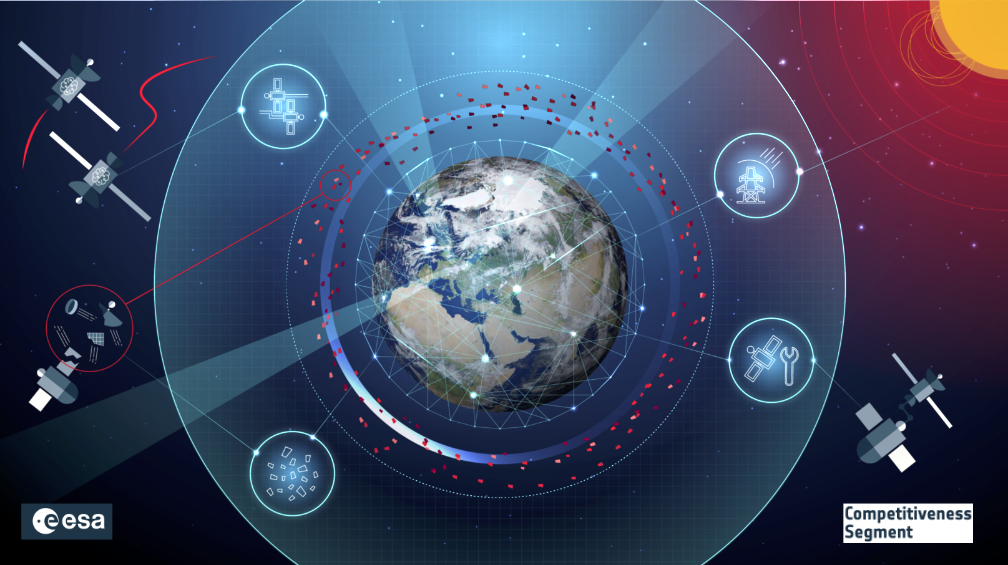
Last month, Vyoma and the European Space Agency (ESA) kicked off a 14-month project within the frame of ESA’s Competitiveness Element in the Space Safety Program — the goal is to evaluate the Vyoma Collision Avoidance Maneuver (CAM) recommendation service according to the strict requirements and quality standards of ESA.

As part of the project, ESA is granting Vyoma access to the Conjunction Data Messages and CAM solutions of up to five of its Earth Explorer missions. This allows Vyoma to mirror the ESA operations on collision avoidance and validate its own optimal maneuver solutions, considering various operational constraints such as propulsion type, delta-v consumption, eclipses, regional anomalies, etc.

Vyoma’s Space Safety services, tailored to the needs of satellite operators, combine its digital space twin with insightful and actionable information. Next to collision warnings, presented in an easy-to-understand interface, Vyoma enables its users to study the geometry and evolution of the conjunction, predict ground-station passes for communication windows, task on-demand tracking campaigns, plan optimal avoidance maneuvers, and screen trajectories against the entire background population.
Dr. Stefan Frey, CEO of Vyoma said, “This project is a great opportunity for Vyoma to learn from the years of experience of ESA engineers. Our goal is to make frequent and accurate space situational awareness data as well as matured space safety services available to satellite operators wanting to keep their assets safe – including ourselves.”
“The competitiveness segment in ESA’s Space Safety Program aims at developing the space safety market and at exploiting commercialization dimensions. Vyoma has developed a market-ready technology that is very relevant for space safety applications, and we are very much looking forward to working with the team for the agreed evaluation of their service,” said Dr. Tim Flohrer, Head of ESA’s Space Debris Office and ESA’s Technical Officer of the project.
About Vyoma
Vyoma is a Munich-based company that leverages ground-based and soon, space-based data to empower automated satellite operations. Officially founded in August 2020, Vyoma enables real-time space traffic management in congested orbits around Earth. While space is becoming increasingly crowded, Vyoma provides safe and automated satellite operations services, drastically reducing mission costs for its customers. The company’s operations services range from detection of close approaches between satellites and debris and optimization of maneuvers, all the way to full automation. Vyoma tenders to operators, reinsurers and space agencies. As a participant in the EU Commission and ESA programs for SDA technology development, Vyoma relies on a specialized workforce of 30+ engineers and scientists.
